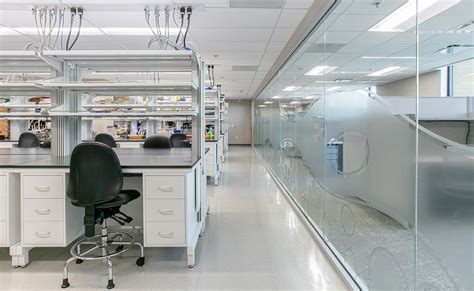A biological laboratory is a facility designed to conduct experiments and research in the field of biology. These labs are typically equipped with specialized equipment and instrumentation to study living organisms, their components, and their interactions. Biological labs can be found in various settings, including universities, hospitals, research institutes, and government agencies.

Types of Biological Labs
There are different types of biological labs, each with its focus and capabilities. Some common types include:
-
Molecular biology labs: These labs study the structure and function of DNA, RNA, and proteins. They use techniques like DNA sequencing, gene editing, and protein analysis to understand the molecular basis of life.
-
Cell biology labs: These labs focus on the study of cells, their structure, function, and interactions. They use techniques like microscopy, cell culture, and flow cytometry to investigate cellular processes.
-
Microbiology labs: These labs study microorganisms, including bacteria, viruses, fungi, and parasites. They use techniques like culturing, microscopy, and molecular diagnostics to identify and characterize microorganisms.
-
Biochemistry labs: These labs study the chemical processes that occur in living organisms. They use techniques like electrophoresis, chromatography, and spectroscopy to analyze the composition and function of biomolecules.
-
Physiology labs: These labs study the function and regulation of organ systems in living organisms. They use techniques like electrophysiology, imaging, and behavioral analysis to understand how organisms respond to their environment.
Importance of Biological Labs
Biological labs play a crucial role in advancing our understanding of life and addressing global challenges. They contribute to:
-
Medical research: Biological labs develop new treatments, therapies, and vaccines for diseases. They also study the underlying causes of diseases and identify risk factors.
-
Environmental research: Biological labs investigate the impact of environmental factors on living organisms. They study pollution, climate change, and the conservation of biodiversity.
-
Agricultural research: Biological labs improve crop yields, develop new food sources, and study the genetics of livestock. They also address issues related to pests, diseases, and soil health.
-
Industrial biotechnology: Biological labs develop new products and processes using biological systems. They create biofuels, biodegradable plastics, and enzymes for industrial applications.
-
Education: Biological labs provide hands-on learning experiences for students in biology-related fields. They help develop scientific skills, critical thinking, and problem-solving abilities.
Future of Biological Labs
The field of biology is rapidly evolving, and so are biological labs. Advances in technology, such as high-throughput sequencing, gene editing, and artificial intelligence, are transforming the way research is conducted.
New Applications of Biological Labs
The possibilities for future applications of biological labs are vast. Some emerging areas include:
-
Personalized medicine: Biological labs can tailor treatments to individual patients based on their genetic makeup and health history.
-
Synthetic biology: Biological labs can design and create new biological systems with specific functions.
-
Bioengineered materials: Biological labs can develop new materials with unique properties for use in industries like construction, electronics, and medicine.
Conclusion
Biological labs are essential facilities for conducting research and advancing our understanding of life. They contribute to medical advancements, environmental conservation, agricultural productivity, industrial innovation, and education. As technology continues to evolve, biological labs will play an increasingly significant role in shaping our future.
